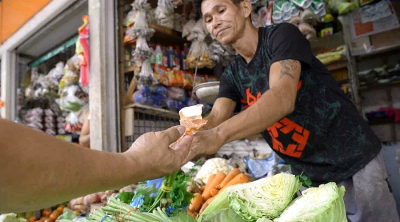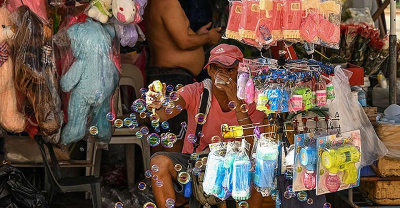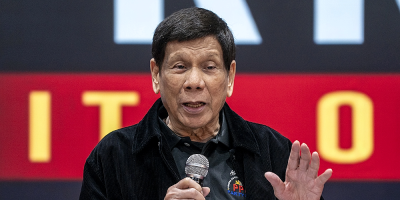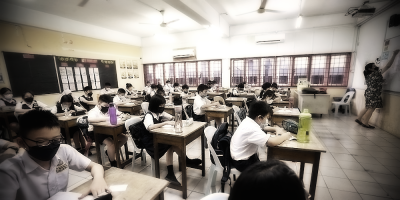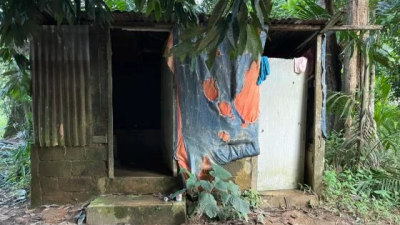BATAC, Philippines: The white van’s sidedoor slides open, a motorized seat pivots and former Philippines first lady Imelda Marcos is lowered to the ground like a modern-day Liberace of politics.
At 92-years-old, her aura is a little less bright these days — her beehive hairdo less voluminous, her slip-on flats less ostentatious and her pantsuit more comfy-but-modish great grandmother than beauty queen.
But Imelda still knows how to put on a show.
She is making a now rare public appearance at a school in Batac, the far northern hometown of her husband, late dictator Ferdinand Marcos.
Practically speaking, she has come to vote in the Philippines’ latest six-yearly presidential election.
Symbolically, she is handing down the family business.
The heir is her 64-year-old son, Ferdinand Marcos Junior, the frontrunner in this year’s race.
By the time Imelda arrives, “Bongbong”, as most people call him, has already been and gone.
His blink-and-you-miss it entrance caused few cheers, despite this being the Marcos’s stronghold.
Unlike his mother, Bongbong is more boardroom than big screen.
His appearance is unremarkable but for a Beatles-style thick black flop of hair — an irony given Imelda’s falling out with the Fab Four left them vowing never to return to the Philippines.
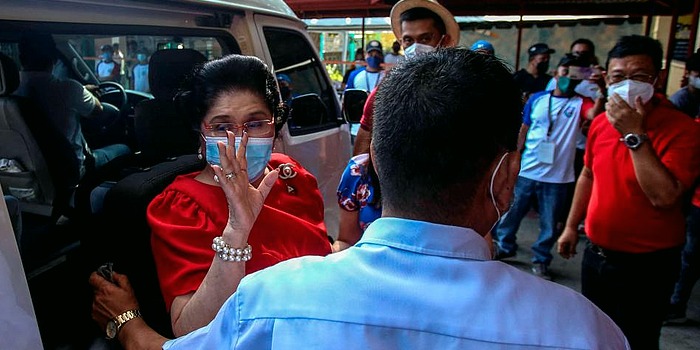
Last Waltz
Shunning a wheelchair on hand, Imelda walks aided and gingerly into the school as a flock of other would-be voters stand waiting and sweltering beyond the gates.
She investigates the fiendishly complex torso-sized ballot paper with the help of daughter Irene and grandson Sandro.
She then signals to an aide, who signals to another aide, who signals a third aide to provide a pack of Kleenex to dab her brow.
It is not quite the travelling court of yesteryear, but more than most Fortune 500 CEOs would have.
Despite a decades-long effort to claw back some of Marcos’s “ill-gotten” billions there are still conspicuous signs of fabulous wealth.
A Chanel brooch, a thick pearl bracelet, a retinue of bodyguards, aides and media trailing her every move.
The most dangerous place on Earth may be between Imelda Marcos and a camera, and any onlooker trapped in that intermundium is quickly shooed aside.
An elderly man who happens to be in the hallway squeals in surprise at seeing her.
He is perhaps around the same age as Imelda, but the years have been less kind.
Rail thin and missing teeth, his threadbare T-shirt is soaked with sweat and his flip-flops worn away at the heel — he appears, quite literally, to be down at heel.
The pandemic has been tough in the Philippines, killing many, making many more jobless and emptying what meager savings the non-destitute could muster.
The pandemic has been hard for Imelda too, according to Sandro, the latest scion of the Marcos clan.
“She’s a very social animal,” he told AFP, hinting that Covid has made lavish parties a thing of the past.
Twenty-eight-year-old Sandro — clean cut, with K-pop good looks and as articulate as anyone with a London School of Economics education — is, after Bongbong, the next great hope to continue the Marcos dynasty.
He is also up for election this year, in a local congressional seat.
It would surprise no one in Batac if, 50 years from now, Sandro was walking assisted into the school to vote for the latest member of the Marcos tribe looking to ascend to the Malacanang presidential palace.
ADVERTISEMENT
ADVERTISEMENT






